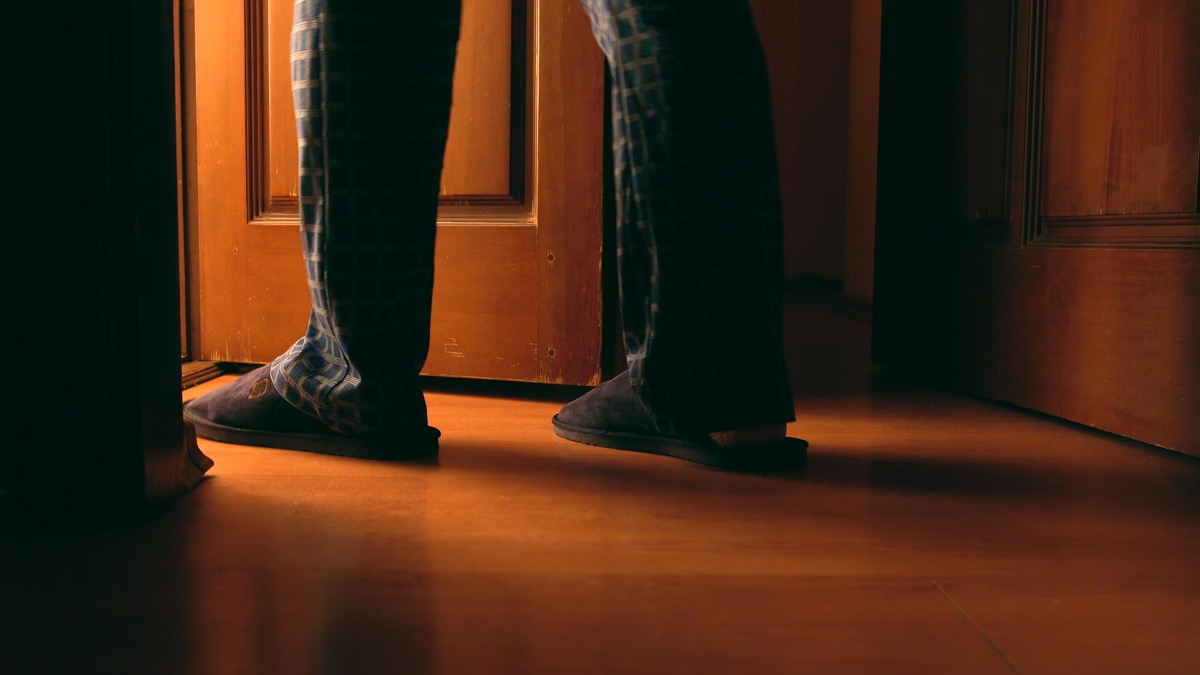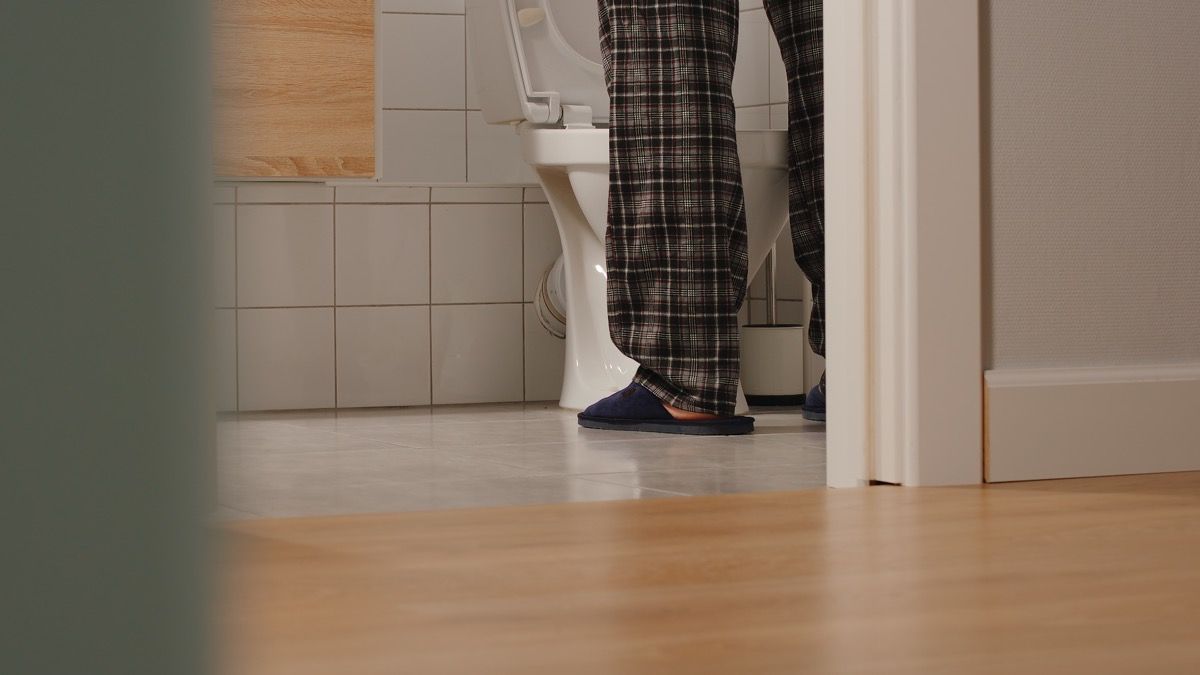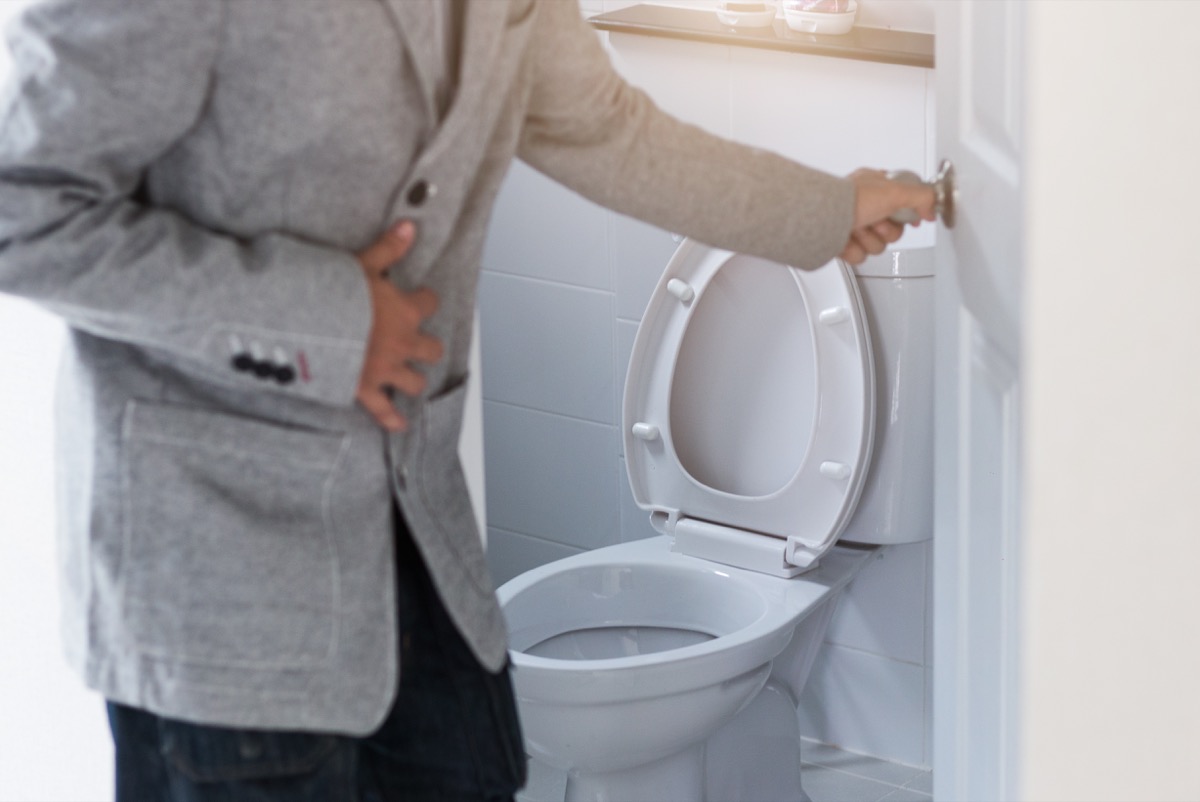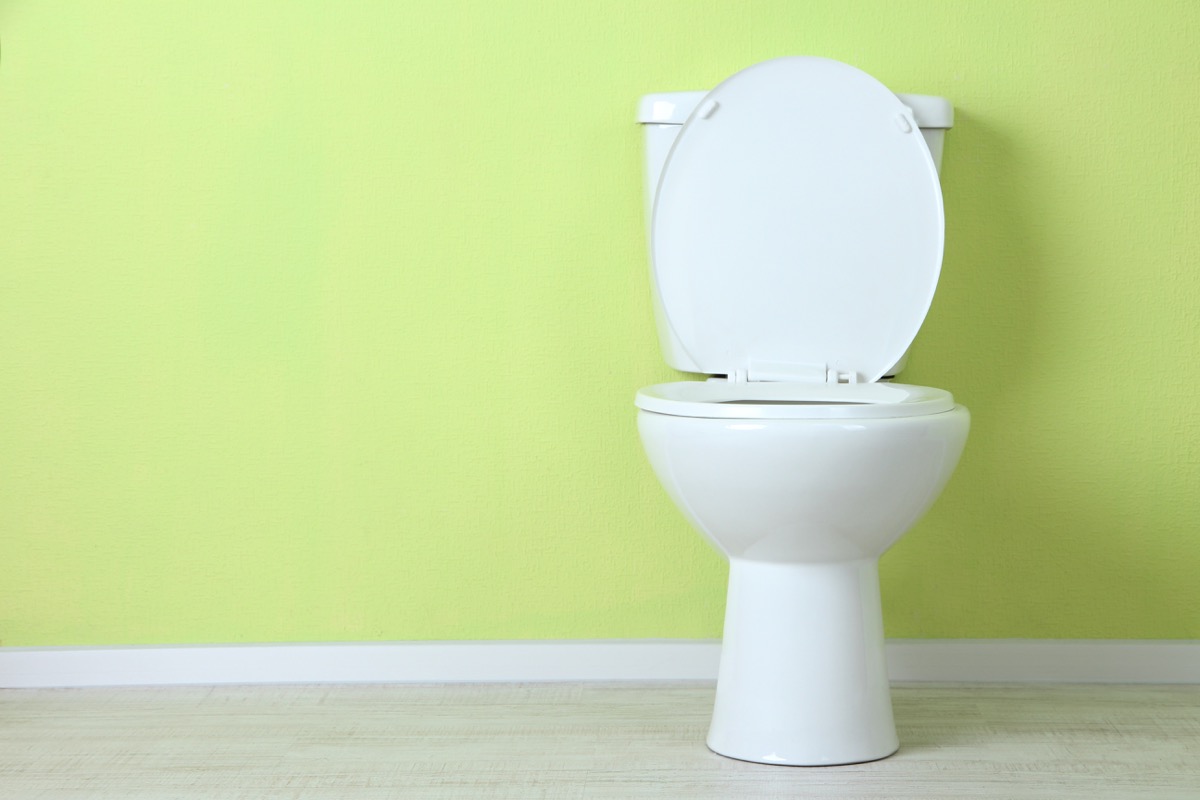“Prostate cancer doesn’t usually have symptoms until it’s in its later stages,” Virginia-based urologist Jennifer Young, MD, told the StoneSprings Hospital Center. “That’s why screening with the prostate-specific antigen (PSA) blood test, and sometimes the digital rectal exam, are recommended.” In addition to getting regular screenings, doctors recommend keeping an eye out for the following symptoms of prostate cancer and notifying your doctor immediately if you think there is something wrong. And to learn the symptoms of another type of cancer that sadly took the life of actor Chadwick Boseman, check out 7 Early Warning Signs of Colon Cancer You Can’t Afford to Ignore. According to Johns Hopkins University, swelling in your lower extremities could be a symptom of advanced prostate cancer, especially when it occurs alongside other symptoms, including “urinary or erectile dysfunction.” When the cancer spreads to the lymph nodes, it causes a blockage, which leads to the build-up of fluids and swelling in your body. And for more on serious cancer symptoms you need to know about, check out 13 Warning Signs Your Pancreas Is Trying to Tell You Something’s Wrong. In addition swelling in your lower body, pain in your hips or upper thighs can also be potential symptoms of prostate cancer, according to Robert J. Cornell, MD, a urologist in Houston, Texas. And for other discomforts you should address with your doctor, check out 25 Common Pains You Should Never Ignore. Cornell also says that as prostate cancer becomes more advanced, you may also experience a dull pain in your lower pelvic area. It’s described as being very similar to the pain you feel when you have a toothache—not the type of pain or soreness you would feel after a hard workout. And for misconceptions about your well-being, check out 20 Worst Men’s Health Myths That Just Won’t Die. Having pain in your bones in any capacity should never go ignored, especially if it is severe or persistent. “In adults, the most common form of bone cancer is when cancer from another organ has traveled to the bone. It has metastasized to the bone. In men, it’s commonly prostate cancer,” Gregory Domson, MD, an orthopedic surgeon in Richmond, Virginia, told UVA Health. “So, if you have bone pain, that’s going to be a clear indicator that something is going on,” he says. And for more things to look out for when it comes to your health, check out 30 Signs of Deadly Health Conditions Hiding in Plain Sight. Don’t assume pain or discomfort while you’re sitting isn’t a big deal. It’s another possible warning sign of prostate cancer, and it typically occurs as the disease progresses. In an article on his website, New York City-based urologist and robotic surgeon David Samadi, MD, said that the issue is caused by an enlarged prostate, which makes it very uncomfortable to sit normally. Having difficulty walking or climbing stairs due to pain or weakness? It’s time to schedule an appointment with your doctor. According to South Carolina-based urologist Neal Shore, MD, it’s a symptom that can emerge as prostate cancer progresses. “Men with advanced disease and their caregivers describe difficulty walking or climbing stairs,” he wrote on Oncology Nurse Advisor. “These symptoms can have a major impact on daily quality of life, but men with advanced disease don’t always recognize these symptoms.” And for things you’re doing that are increasing your chances of another serious health problem, check out 20 Ways You’re Raising Your Risk of a Heart Attack Without Knowing It. If you’ve cleaned up your diet and have been exercising regularly, it’s very clear why you might be shedding a few pounds. But if you’re suddenly losing weight out of nowhere without trying to, it could be a signal of a health problem—prostate cancer included. According to Prostate Cancer U.K., weight loss often occurs with prostate cancer because of a “change in the way your body uses energy,” and that can eventually make you feel tired and weak.ae0fcc31ae342fd3a1346ebb1f342fcb There are many reasons you may experience lower back pain, but if it’s something that’s been bothering you for awhile, it could be a sign of something more serious than sore muscles or bad posture. “It can be easy to ignore chronic low back pain and miss it as a prostate cancer symptom,” says Tempe, Arizona-based naturopathic oncologist Heather Paulson, ND. “If you have low back pain that’s not getting better with treatment, be sure to check your PSA and rule out prostate cancer. Sometimes it’s the first sign you’ll notice.” “One of several possible causes of having to urinate more frequently at night could be prostate cancer and prostate health, especially if you’re limiting liquid intake several hours before bedtime,” Paulson says. And for more helpful information delivered straight to your inbox, sign up for our daily newsletter. In addition to having to urinate more frequently, prostate cancer can also cause you to have the opposite, but related, problem of having difficulty urinating, Paulson says. That may be due to the fact that a tumor in the prostate presses on the urethra—the tube that carries urine from your bladder, through the prostate, and outside your body. When it’s compressed, it can be harder to go to the bathroom. Experiencing a lack of control and losing your ability to stop urinating can also be a sign of prostate cancer. If it’s something you’re experiencing, Paulson says it’s important to bring it up to your doctor. The most common cause of pain or burning when urinating is a bladder infection, Paulson says. “However, if your urine test comes back negative for infection or the burning and pain is persistent, be sure to dig a little deeper and check your prostate. It could be an easily missed sign of prostate cancer,” she says. If you went from having a normal stream to a weaker flow, that’s another sign you need to see your doctor. “When there’s a mass or swelling in the prostate, it can press on the urethra,” Paulson says. “It’s almost like pinching a straw. If you pinch a straw, it’s hard for liquid to come through your straw. The same thing can happen to urine flow, making it hard to have a strong urine stream.” Blood in your urine is something you should never, ever ignore. “No matter what the cause, if you see blood in your urine, get in to see your doctor,” Paulson says. “This can be linked to prostate cancer, bladder cancer, and dangerous infections.” Like blood in your urine, seeing blood in your semen can also signal an incredibly serious problem. “If you’re a man over 40 years old and have blood in your semen, you need to be screened for prostate cancer,” Paulson says. Because these symptoms often occur in the advanced stages of the disease, ignoring them could have serious consequences. According to Paulson, men over 40 should also be screened for prostate cancer if they’re experiencing pain during climax. In addition, a decreased volume of semen can be another indicator of prostate cancer, according to Johns Hopkins University, although that can also be attributed to factors like hydration levels and diet. While experiencing pain when climaxing is one warning side of prostate cancer, so is having difficulty getting an erection in the first place. According to Regional Cancer Center Associates (RCCA), it’s an issue that can occur once cancer cells begin to spread. “Many men put off talking about this symptom with their doctors, but the sooner it’s treated, the better the results,” Paulson says. Additional Reporting by Sarah Crow






